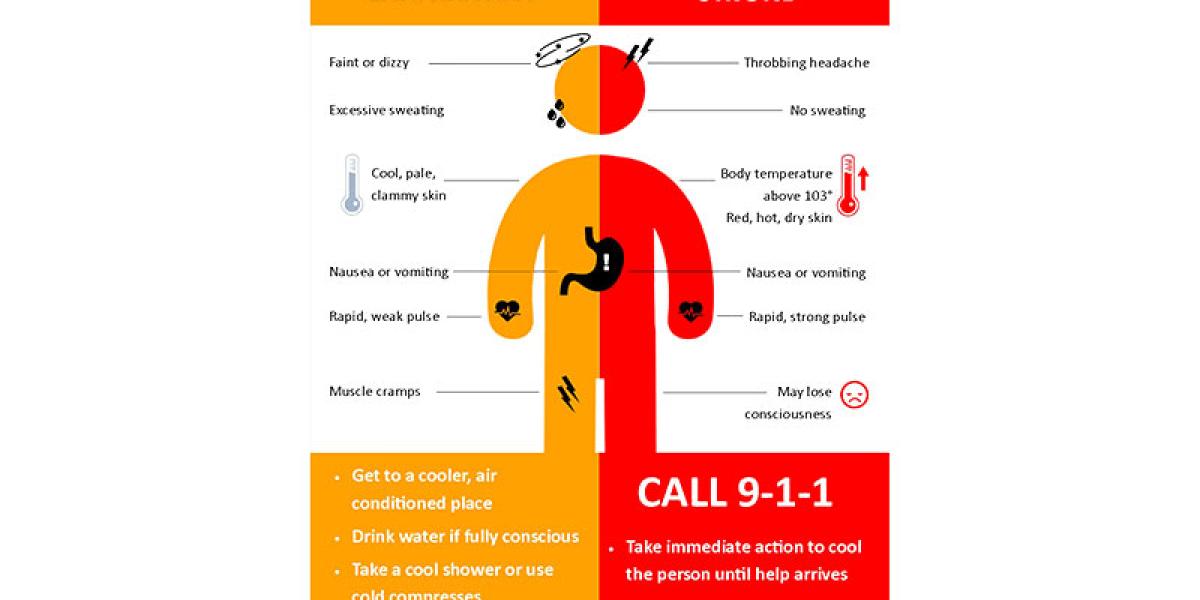Heat stress, heat exhaustion, or heat-related illnesses are possible when working in elevated temperatures. Whether it’s indoors around machinery or outdoors in the sun, be aware of physical responses to avoid heat-related conditions. Here are some basics:
- Humidity does matter. The more humid it is, the more difficult it is to sweat. Sweating or having sweat evaporate by means of a fan (or natural breeze) is one of the body’s most important means of cooling down its core temperature.
- Slow down in hot weather. The more active you are, the more heat the body needs to dissipate. Your muscles use only a small portion of the energy you exert. The remainder is used to heat the blood and core temperature. Even walking can be too much if the outdoor temperature is too high to allow proper cooling.
- Stay hydrated, but avoid liquids that are very cold. Large amounts of sugar can backfire because it can trigger high loss of body fluid. Sports drinks can replace salt and minerals lost through sweating, but individuals on a low-salt diet should choose other options. Food should be cool and have limited spices.
- Wear light-colored, lightweight, and loose-fitting clothing and a wide-brimmed hat. Find shade when you can. When the heat is too extreme, take breaks indoors in air conditioning if possible.
- The risk of developing heat illness is higher among older adults, very young children and among people with fever, heart disease, high blood pressure, poor circulation and obesity. Those already nursing a sunburn are more vulnerable to heat. Certain medications, including antidepressants and diuretics, also can affect body temperature regulation.
- Know the signs and symptoms of heat-related illnesses. For instance, if you’re not sweating and your skin feels hot, or if you feel nauseous, are dizzy or have a headache, slow down and take steps to cool the body. Mental confusion is another sign that the body is experiencing too much heat.
- Act quickly to obtain first aid. Get out of the sun and stop moving. If possible, submerge yourself in a swimming pool, lake or body of water and move your limbs so the water circulates around your body. That’s the liquid version of wind, which will cool you faster.
Download "Heat Exhaustion or Heat Stroke" graphic
Contact Cathy Black at 614-292-1284 for additional information.
Stay safe today and remain a Buckeye tomorrow.

